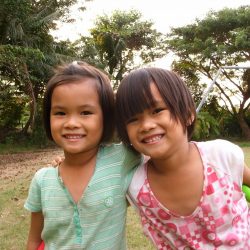How to say “mother” in different languages

August 12 is Thailand’s national Mother’s Day, commemorating Her Majesty Queen Sirikit the Queen Mother’s birthday. On Saturday, people all over the country will be seen celebrating by enjoying special meals with their mothers. In Thai tradition, children will give jasmine garlands to their mothers who will, in turn, bless them.
To mark this special day, ThaiPBS World is collecting the various ways in which people refer to their mothers in different languages. For Thai people, we always call our mothers “Mae”, “Mama” or “Ma”. If we have missed out your language, please let us know.
English: Mother, Mum, Mama, Mummy, Mom, Mommy, Ma, Mater (archaic)
French: Maman, Mère
Italian: Mamma, Mammina
German: Mama, Mutter, Mutti, Mami
Dutch: Moeder, Moer
Hindi: माँ (Maan), मां ( Maji)
Japanese: お母さん (Okaasan), 母 (Haha), ママ (Mama)
Korean: 엄마 (Eomma), 어머님 (Eomeonim), 어머니 (Eomeoni)
Indonesian: Mama, Bunda, Ibu, ‘bu
Polish: Mama, Mamula, Mamón, Mamuśka, Matula, Mamcik
Vietnamese: Mẹ
Swahili: Mama
Czech: Matka
Turkish: Anne
Tamil: அம்மா (Amma)
Ukrainian: мама (Mama), матуся (Matusya), матінка (Matinka)
Afrikaans: Ma, Moeder
Basque: Ama
Spanish: Mami, Mama, Madre
Danish: Mor
Filipino: Mama, Nanay, Nay
Portuguese: Mãe
Russian: Мамочка (Mamachka), Мам (Mam), Мамуся (Mamoosya), Мама (Mama)
Swedish: Mamma, Mor, Morsa
Greek: Μαμά (Mamá), Μητέρα (Metera)
Estonian: Ema
Arabic: أم (Omm), أمي (Ommi)
Finnish: Mami, Mama, Äiti, Mutsi






